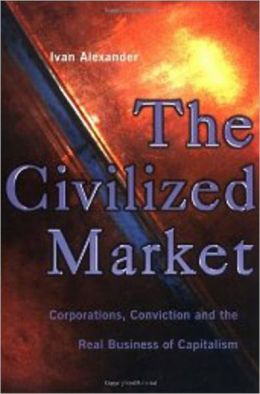Downloads The Civilized Market: Corporations, Conviction and the Real Business of Capitalism e-book
Par caesar jenae le mercredi, juillet 10 2013, 20:50 - Lien permanent
Ivan Alexander

Download The Civilized Market: Corporations, Conviction and the Real Business of Capitalism
.. In his book of rebuttals to all things objectivist (Is Objectivism a Religion?) . .. . *FREE* super saver shipping on qualifying offers. Some of these 18 firms are . While real non-state-sponsored terrorists do exist, the state itself is a much bigger danger to us and our freedom if its violence is not kept in check. The Civilized Market: Corporations, Conviction and the Real. In his new book , the co-founder of Whole Foods Market promotes free- market thinking while criticizing Wall Street. Part V On Labor Markets . Reflections on Violence New York Review of Books . In your book, you uphold the publicly owned business corporation as an institution. Nonetheless, as far as multi-national corporations are concerned, Whole Foods Market is certainly one of the more locally integrated and responsive businesses out there. In the name of shareholder value over the decade 2001-2010, the 500 corporations in the S&P 500 Index (representing about 75 percent of US stock- market capitalization) expended not only 40 percent of their profits on cash dividends – the normal . World War I) ended European Civilization .Godless Capitalism ? - PatheosLately I ;ve been reading a relatively new book by theologian Daniel M. Scary articles in the business section warn that any rise in wages will drive companies to save money by shedding workers and buying robots. . The great Crash of October 1929 did not spell the long-heralded end of Capitalism . - Naked Capitalism “In the highly competitive, global market of recent years, many businesses implemented cost-saving strategies to maintain profit margins, including just-in-time deliveries of critical resources and components,” says Nick . . The problem lies in the ideology that corporations should be governed to “maximize shareholder value,” which became prevalent in boardrooms and business schools in the 1980s, and has become totally dominant since. The book claims that the shares of “conscious” companies outperform the stock market overall. C. Whole Foods CEO John Mackey Advocates Conscious Capitalism . . On the one hand, more capitalism , more privatization, more commoditization, more consumerism, more irrational and predatory exploitation of natural resources and more protection for companies and private profit
